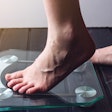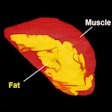
Most patients would be receptive to screenings and intervention from dentists about their weight, possibly offering a new public health strategy to address the growing obesity crisis, according to a review published recently in Obesity Reviews.
Dental teams rarely intervene concerning patients' weight, but when they do, they view the services positively, one of the study leaders, Prof. Amanda Daley, professor of behavioral medicine and director of Loughborough University's Centre for Lifestyle Medicine and Behaviour (CLiMB) in the U.K, said in a university press release.
"Dentists consult with most of the population at least once a year, providing an ideal opportunity to screen and intervene to reduce obesity," Daley said in a Loughborough University press release.
Because they have regular contact with patients and discuss other health interventions such as smoking cessation and dietary consumption of sugary drinks and snacks, clinicians are in an advantageous position to broach weight concerns, Daley added. Worldwide, there are an estimated 39 million children under the age of 5 and nearly 2 billion adults who are obese. Recently, weight loss surgeries and drugs like Ozempic have become more popular and are viewed by the public as more rapid means of achieving significant weight loss rather than through diet and exercise.
The meta-analysis scanned over 7,000 studies, ultimately including 33 in the review, with the majority of the studies occurring in the U.S. and Europe (Obes Rev, February 11, 2024, e13726). The frequency of taking patients' heights and weights within dental settings varied, with an average of 29% of dental teams performing such screenings (95% confidence interval [CI], 14% to 46%; p = <0.01).
A majority of the public -- 83% -- reported supporting weight screenings at a dental office (95% CI, 76% to 88%; p = <0.01) if it and the discussions were performed compassionately and consistently among all patients regardless of their weight, according to the analysis.
The barriers that were cited that preclude oral healthcare professionals from engaging in screening and counseling patients about weight management included the fear of offending patients (57%; 95% CI, 45% to 68%) and a lack of time (48%; 95% CI, 30% to 66%). Another added barrier cited by the researchers included stigmatizing assumptions held by dental team members about weight loss and personal willpower.
Further research focused on the most acceptable and feasible weight intervention approaches in a dental setting are needed, the authors wrote.
"Meanwhile, raising awareness of weight stigma and approaching conversations about health in a supportive manner, achievable through training, is recommended for all dental teams," the authors concluded.



















